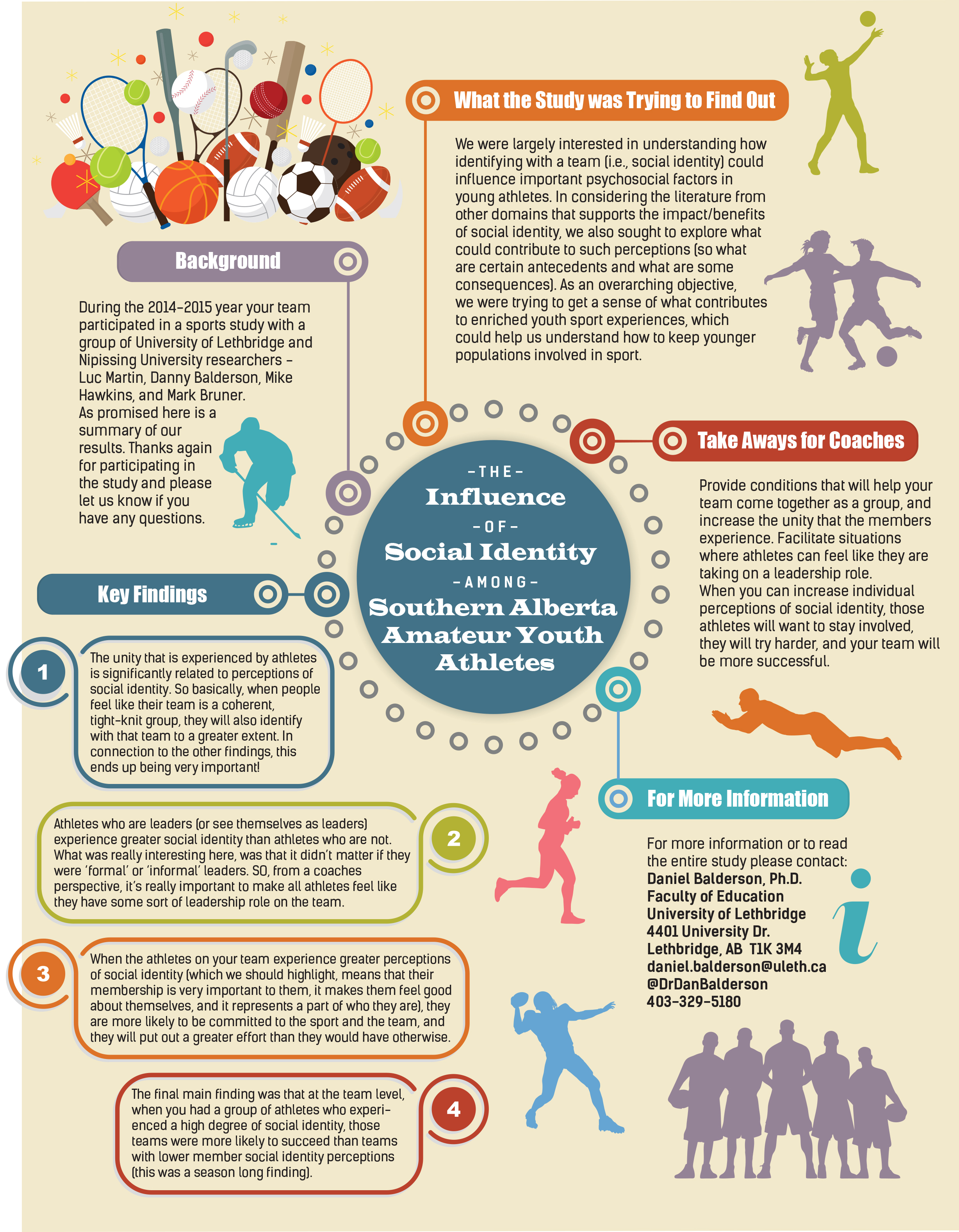As youth flock to soccer pitches and baseball diamonds for spring league play, a University of Lethbridge researcher has some tips for coaches to help ensure they have a good experience and are more likely to find success on and off the field.

“The main idea we were looking at is how belonging to a team influences an individual athlete’s social identity,” says Balderson. “Youth sports are more popular than they’ve ever been before but there are a lot of challenges, too.”
Youth sports are affected by dropout, burnout, and pressure from parents and coaches to specialize in a single sport from an early age. The research team wanted to know what factors contribute to enriched experiences for youth involved in sports and better understand how to keep younger populations involved in sport.
The main findings from the study indicate that players identify with a team more when they feel their team is a tight-knit group. Athletes also experienced greater social identity when they saw themselves as leaders. When youths value their team membership, they are more likely to be committed to the sport and their team, and to put out greater effort. Teams made up of players with a high degree of social identity were also more successful.
“If coaches can do things to promote social development among their players and give them opportunities to be leaders, the kids are going to feel more connected to the team,” says Balderson. “One way to connect players is to create a team ritual, even something as simple as a team cheer.”
To help team members feel like leaders, coaches can make a point of acknowledging players’ contributions, letting them know it was important to the team and asking them to continue making those kinds of contributions. An athlete may not be a formal leader like the captain of the team but if he or she has some leadership responsibility — maybe she’s the person who cheers everyone up when things are looking grim — the more likely the athlete will feel connected to the team.
“When players experience high amounts of social identity, they’re more likely to have joy and success in that sport, to stay with it and continue on in the next year, and to be more physically active throughout their life,” says Balderson. “We found that teams that had a high winning percentage focused on social identity more than teams that didn’t. It might mean a coach stops a practice to do social team-building exercises to help everyone feel connected because that is tied to winning.”
Coaches might think it a waste of time to stop a practice to do a team-building activity or to give players opportunities to socialize, such as through a team retreat, but Balderson’s study provides the proof. Youths who feel they belong want to stay involved and will try harder and that leads to more success as a team.
“The research is saying that if you devote some time to social identity, your team will do better in the end,” he says. “When the coach can make everyone feel like they’re part of something, that’s where the positive results come.”
The study results have been published in several academic journals and Balderson recently presented the findings in Nashville, Tennessee at SHAPE America, the world’s largest physical education and coaching conference.

